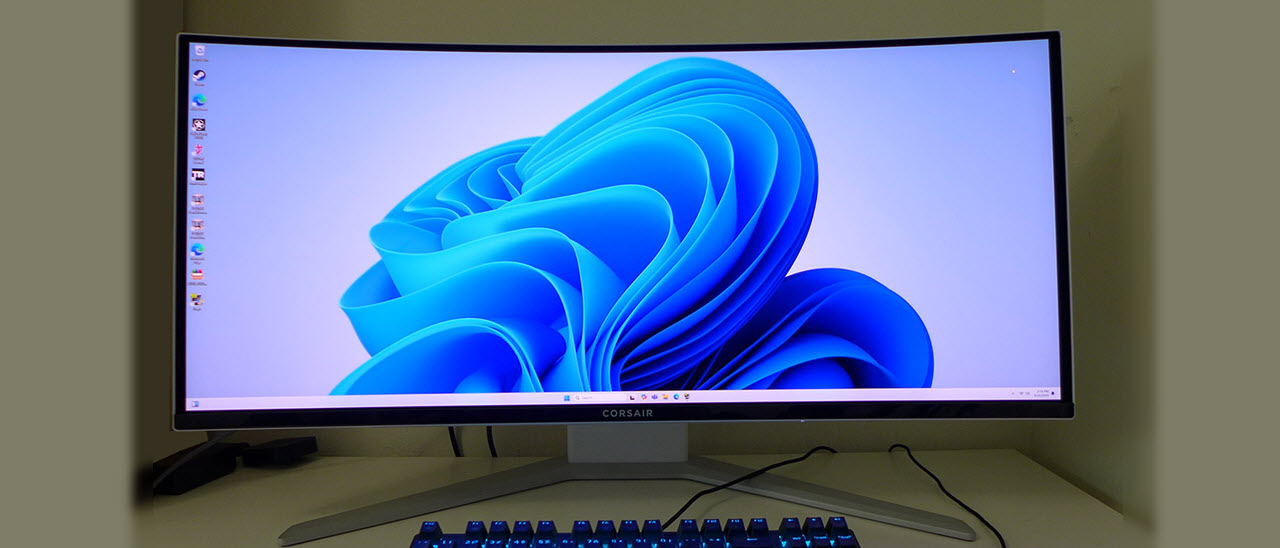Why you can trust Tom's Hardware
Our HDR benchmarking uses Portrait Displays’ Calman software. To learn about our HDR testing, see our breakdown of how we test PC monitors.
The 34WQHD240-C accepts HDR10 signals and switches modes automatically with two presets available, HDR and HDR Peak Brightness. Appropriately, the second one is brighter and the option I used for both testing and gameplay.
HDR Brightness and Contrast
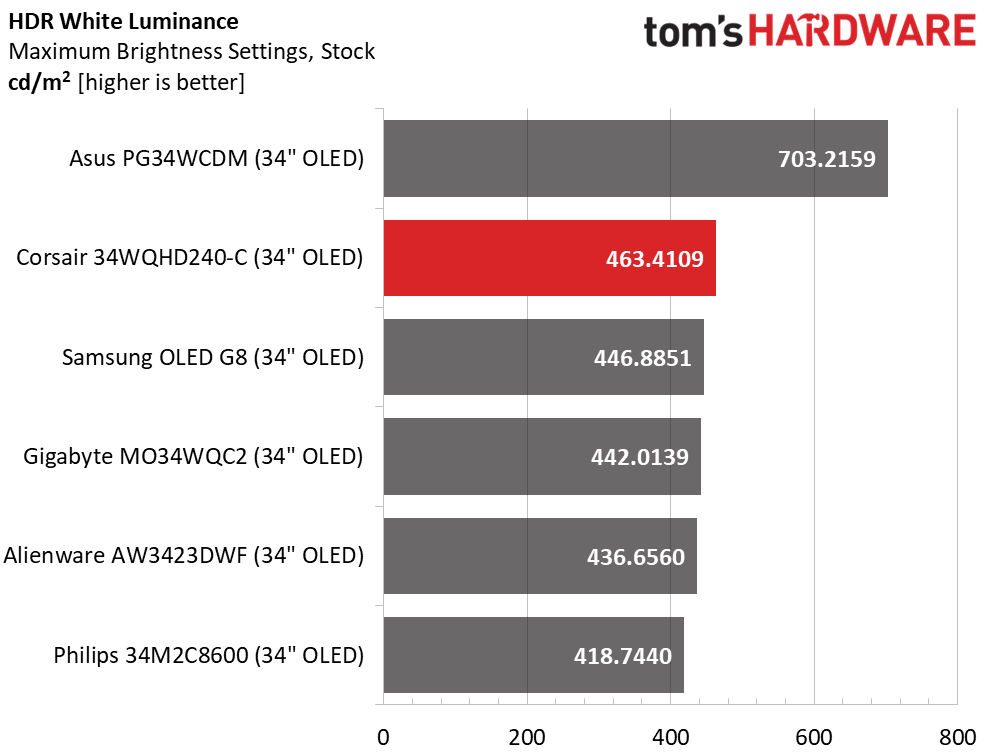
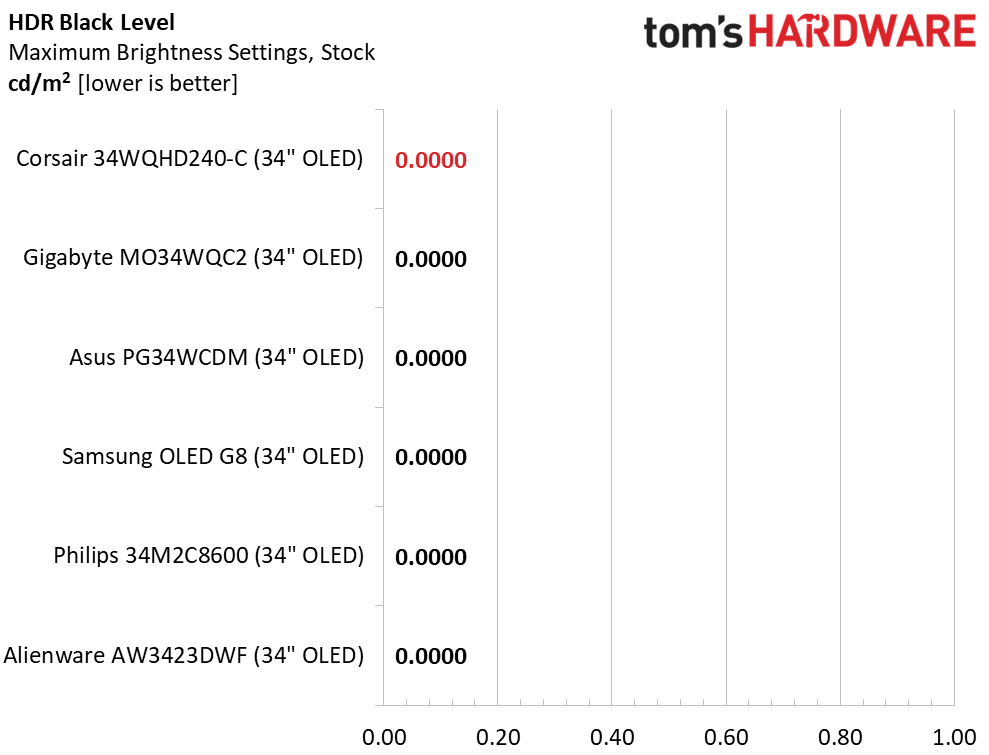
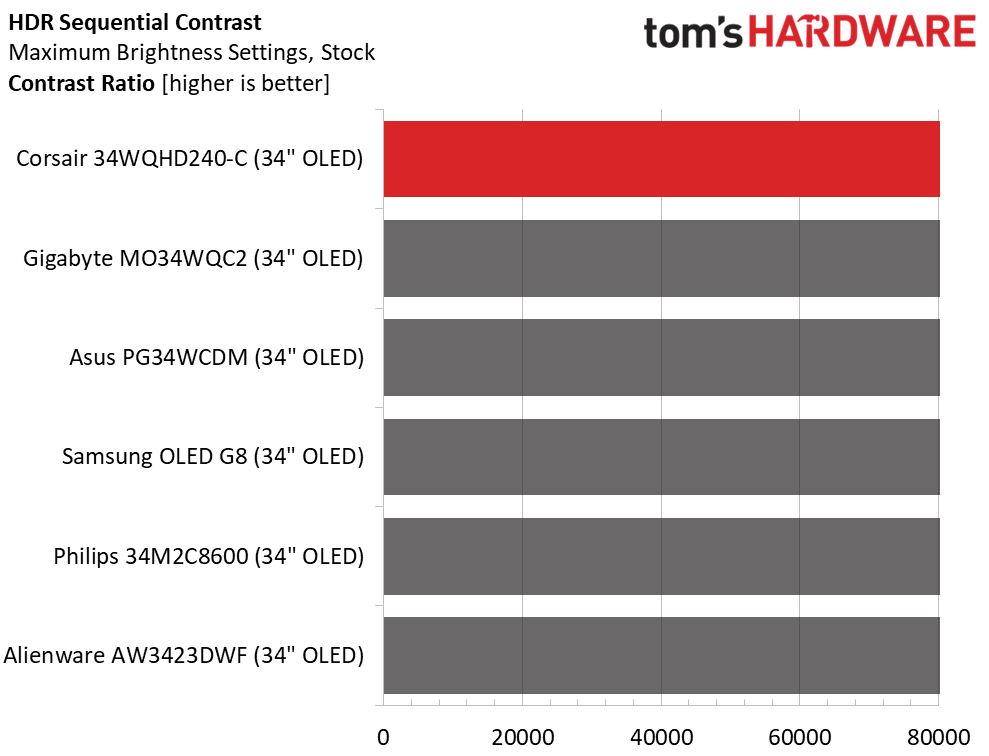
Monitors in this category are all very close to one another in peak HDR brightness except for the Asus which pushes its panel a little harder for more highlight impact. The visual difference is small, but if you want every last nit, the PG34WCDM is the one to choose. The 34WQHD240-C is on par with the rest and in practice, it delivers HDR that’s every bit as good as the very best. Regardless of peak luminance, black levels and contrast cannot be measured.
Grayscale, EOTF and Color
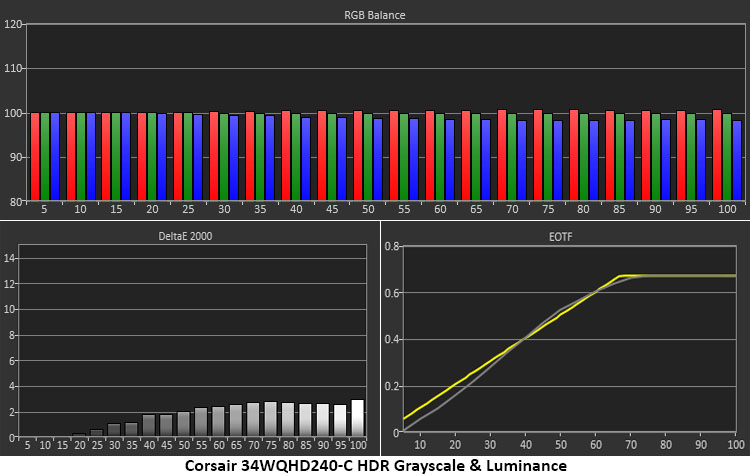
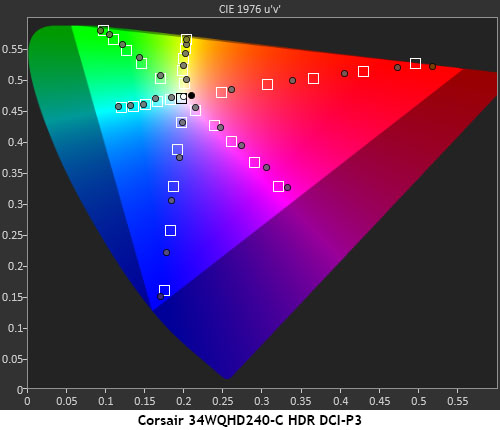
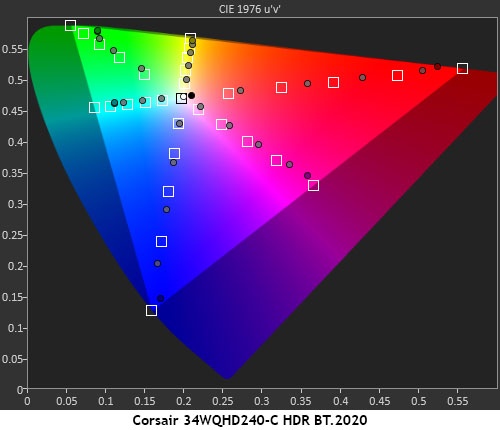
The 34WQHD240-C maintains its high accuracy in the HDR tests. Grayscale is without visual error as all values are below 3dE. The EOTF trace starts out slightly dark until it meets the reference line at 35% brightness and maintains a consistent rise to the tone map transition at 65%. This is the correct value for the measured white level. All detail present in the original content will be clearly rendered from the deepest shadows to the brightest highlights.
HDR color is generally and linearly over-saturated with even coverage of the DCI-P3 gamut and bonus color at the triangle perimeter. Hue points are on or close to their targets and there is no loss of detail or clarity in any part of the image. In the BT.2020 test, the same over-saturation is seen until the 34WQHD240-C runs out of color at 95% red, 80% green and 95% blue. This is consistent with all the Quantum Dot OLED monitors I’ve tested.
Test Takeaway: The 34WQHD240-C delivers stellar HDR with accurate grayscale, EOTF and gamut tracking. Color is generally and consistently over-saturated which delivers extra impact without muddying detail. Contrast is unmeasurable like all OLEDs and peak output is on par with the competition. You will enjoy the best possible HDR from the Corsair, and any OLED monitor.
MORE: Best Gaming Monitors
Get Tom's Hardware's best news and in-depth reviews, straight to your inbox.
MORE: How We Test PC Monitors
MORE: How to Buy a PC Monitor
MORE: How to Choose the Best HDR Monitor

Christian Eberle is a Contributing Editor for Tom's Hardware US. He's a veteran reviewer of A/V equipment, specializing in monitors. Christian began his obsession with tech when he built his first PC in 1991, a 286 running DOS 3.0 at a blazing 12MHz. In 2006, he undertook training from the Imaging Science Foundation in video calibration and testing and thus started a passion for precise imaging that persists to this day. He is also a professional musician with a degree from the New England Conservatory as a classical bassoonist which he used to good effect as a performer with the West Point Army Band from 1987 to 2013. He enjoys watching movies and listening to high-end audio in his custom-built home theater and can be seen riding trails near his home on a race-ready ICE VTX recumbent trike. Christian enjoys the endless summer in Florida where he lives with his wife and Chihuahua and plays with orchestras around the state.
-
das_stig So once again TH takes no notice of forum comments from previous monitor reviews, just be ignorant !Reply
Cons-
No internal speakers or LED lighting
Incorrect, to me and probably a large percentage of buyers, this is a Pro, stop being bias ! -
Dieter Binst Regarding the comparison of input lag, on which firmware we're the screens tested? I don't know for all screens, but input lag on the Alienware, has been reduced with firmware upgrades.Reply -
thestryker The pixel layout on the earlier panel caused some text issues (it either bothered you or not) so it would be good to note if it's the same (it was on MSI's 240hz so I assume it is here too).Reply
Still not sold on going OLED longevity wise, but there are no good alternatives in the ultrawide space so I may end up there just the same. -
Jame5 Reply
This honestly is one of the main things I'm looking for in a new monitor. I have an older 34" Alienware model, and I'm just waiting for one of the new QD-OLED models (Alienware or otherwise) to be the "One monitor to rule them all." My office is where my gaming setup is, but it's also where I do work. I would love to have a USB-C + PD connection for my work laptop when it's in use, and a DP 2.0/HDMI 2.1 connection for my desktop when it's time to relax.strobolt said:Is there power delivery included in the USB-C video port and how many watts?
Part of me wonders if the 100w power supply would push the heat limits inside the chassis to the point where they would require active cooling on the monitor? -
8086 I wish this monitor had Gsync Ultimate but not instead of Freesync Premium Pro. I would love to see more monitors that are certified for both.Reply
